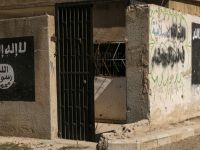The Expediency Council, Iran's highest legislative oversight body, on Sunday approved most items in the budget approved by the reformist-run parliament, but refused cuts for conservative-dominated state broadcasting, official television reported.
It quoted Mohsen Rezai, secretary of the Expediency Council, which arbitrates in disputes between various branches of the Islamic regime, as saying it accepted a buy-back program for oil contracts .
The council, headed by former president Ali Akbar Hashemi-Rafsanjani, intervened in the budget process for the first time since the 1979 Islamic revolution after unprecedented disputes between reformists and the Guardians Council, which must rule that all new legislation conforms to Islamic law.
The Guardians Council had declared that the oil buy-back program, under which French oil giant TotalFinaElf and other companies have signed contracts that will let them be paid after investments, amounted to a form of interest forbidden by Islam.
But the Expediency Council, at a special session attended by pro-reform President Mohammad Khatami, decided Sunday "to admit the parliament was right," Rezai said.
The body also overruled the Guardian Council's objections and approved funding for political parties and the political and cultural activities of the Islamic republic's minority Christian, Jewish and Zoroastrian communities.
But the Expediency Council struck down cuts in funding for state television and radio, which the parliament's conservative minority had charged were politically motivated.
Reformists charge that state TV helped to undermine the reform movement by broadcasting footage from an "un-Islamic" political conference in Berlin which led to long jail terms for 10 allies of the president.
The parliament also scored a partial success in its bid to have businessmen repay some six billion dollars lost to the state because of a generous exchange rate policy to stimulate the economy in the wake of the 1980-88 Iran-Iraq war.
It was ruled that powerful state foundations which also benefited from the move should not be subject to parliamentary investigation.
The budget is the first by the pro-reform parliament, which swept to power in elections last spring, and the last in the four-year term of President Mohammed Khatami, who has not announced whether he will seek re-election on June 8.
The parliament had modified some 15 items Saturday before sending the budget to the Expediency Council.
The budget for the Iranian year 2001, which begins in March, totals a record $46 billion at the official exchange rate, a 24 percent rise over that of the previous year.—AFC.
(c)--Agence France Presse 2001.
© 2001 Mena Report (www.menareport.com)







